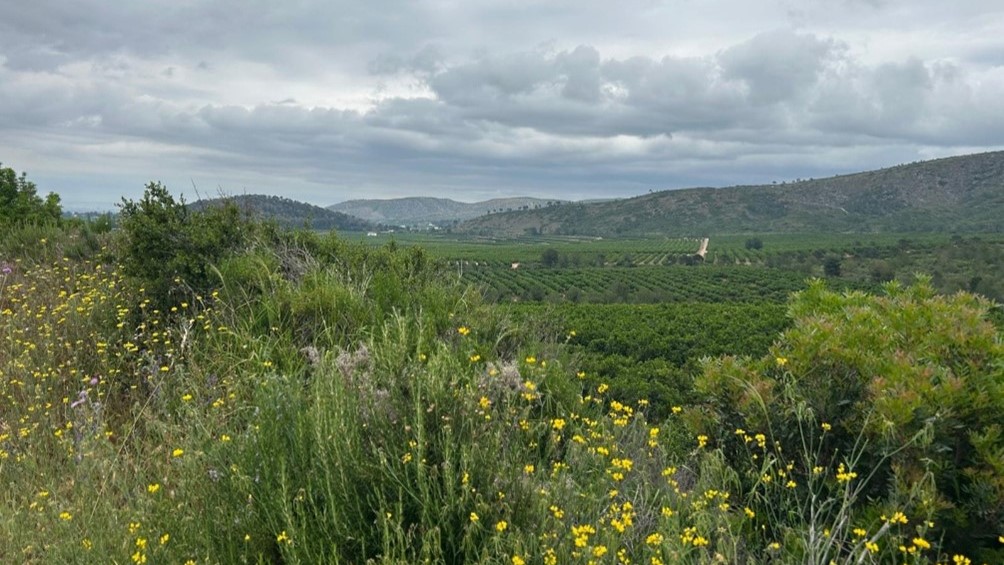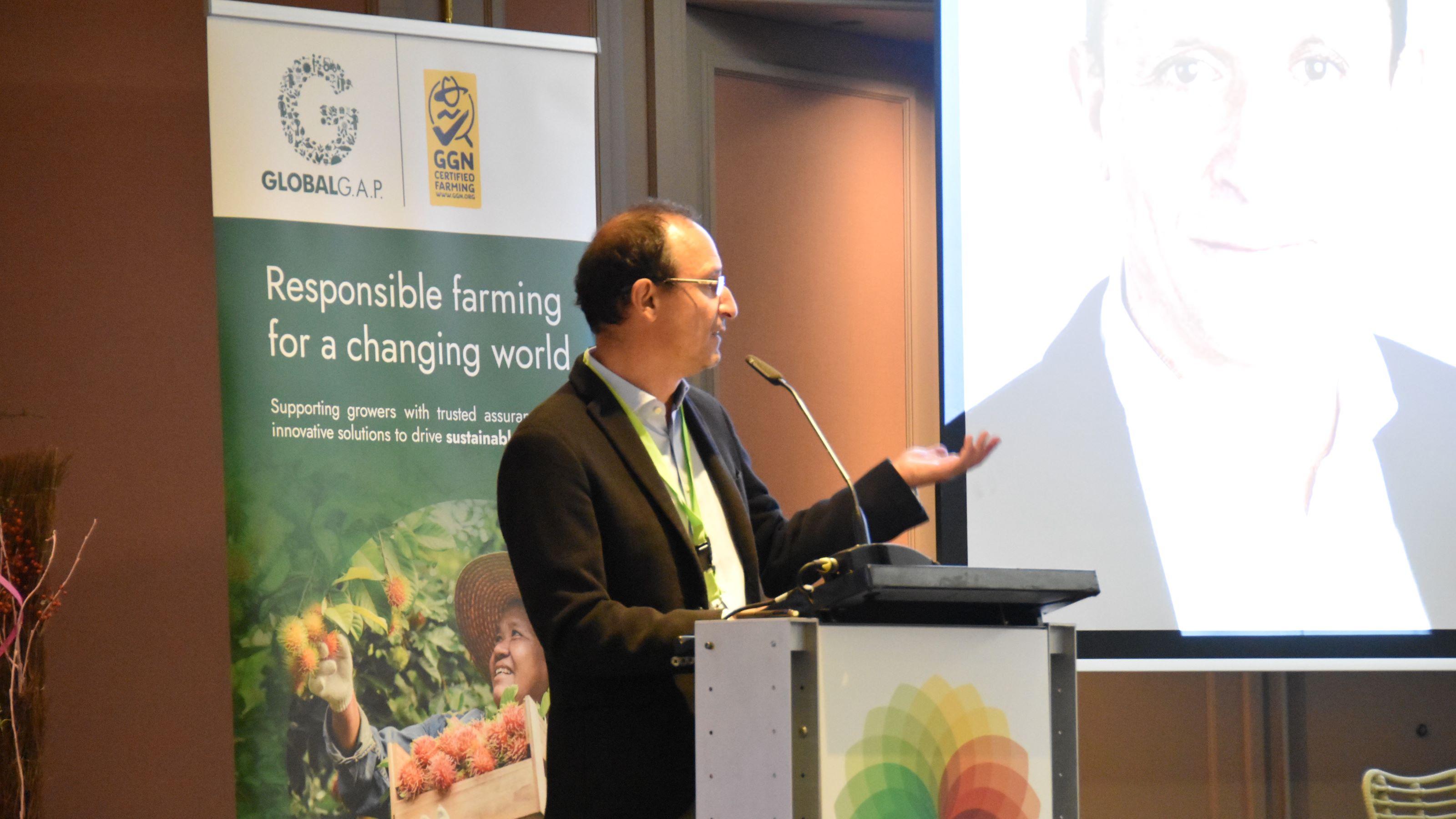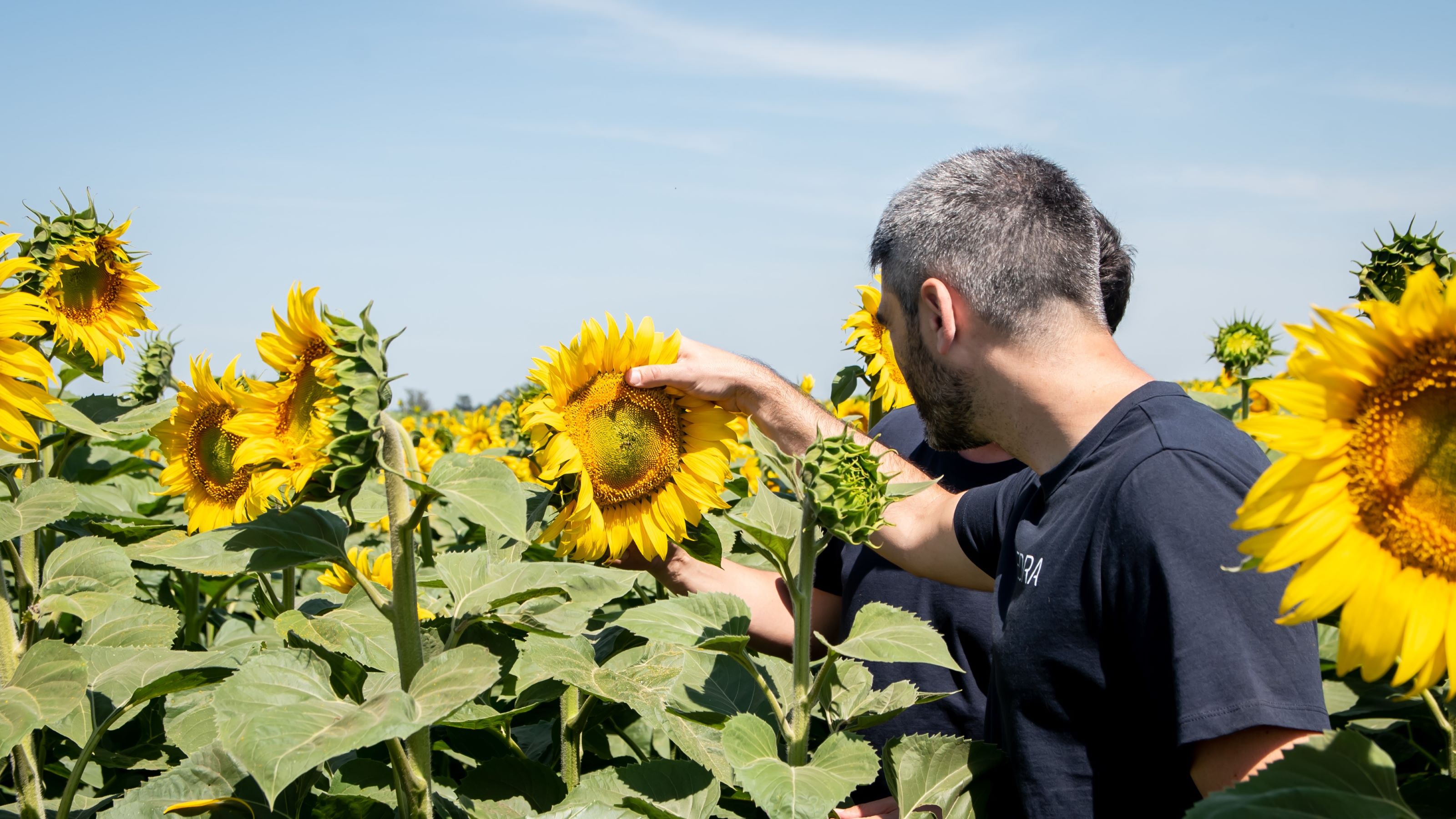
Core solution
Integrated Farm Assurance for flowers and ornamentals
Integrated Farm Assurance (IFA) for flowers and ornamentals is a global standard that aims to promote safe and responsible farming practices at all stages of production. It is built on a holistic approach that seeks to address the key topics of environment, workers’ health, safety, and welfare, production processes, and traceability.
GLOBALG.A.P.’s flagship standard
What is Integrated Farm Assurance for flowers and ornamentals?
Developed by the industry, for the industry, Integrated Farm Assurance (IFA) for flowers and ornamentals is a global standard that aims to promote safer and more responsible farming practices in flower and ornamentals production. With requirements on topics such as soil and water management, plant protection, plant nutrition, biodiversity, and workers’ health, safety, and welfare, the standard allows producers to measure their progress, demonstrate their commitment to protecting surrounding ecosystems, and improve the efficiency of farm operations. Continuously developed in extensive collaboration with sector stakeholders, IFA is tried, tested, and trusted around the world, with IFA-certified production processes for flowers and ornamentals covering more than 38,000 hectares annually.
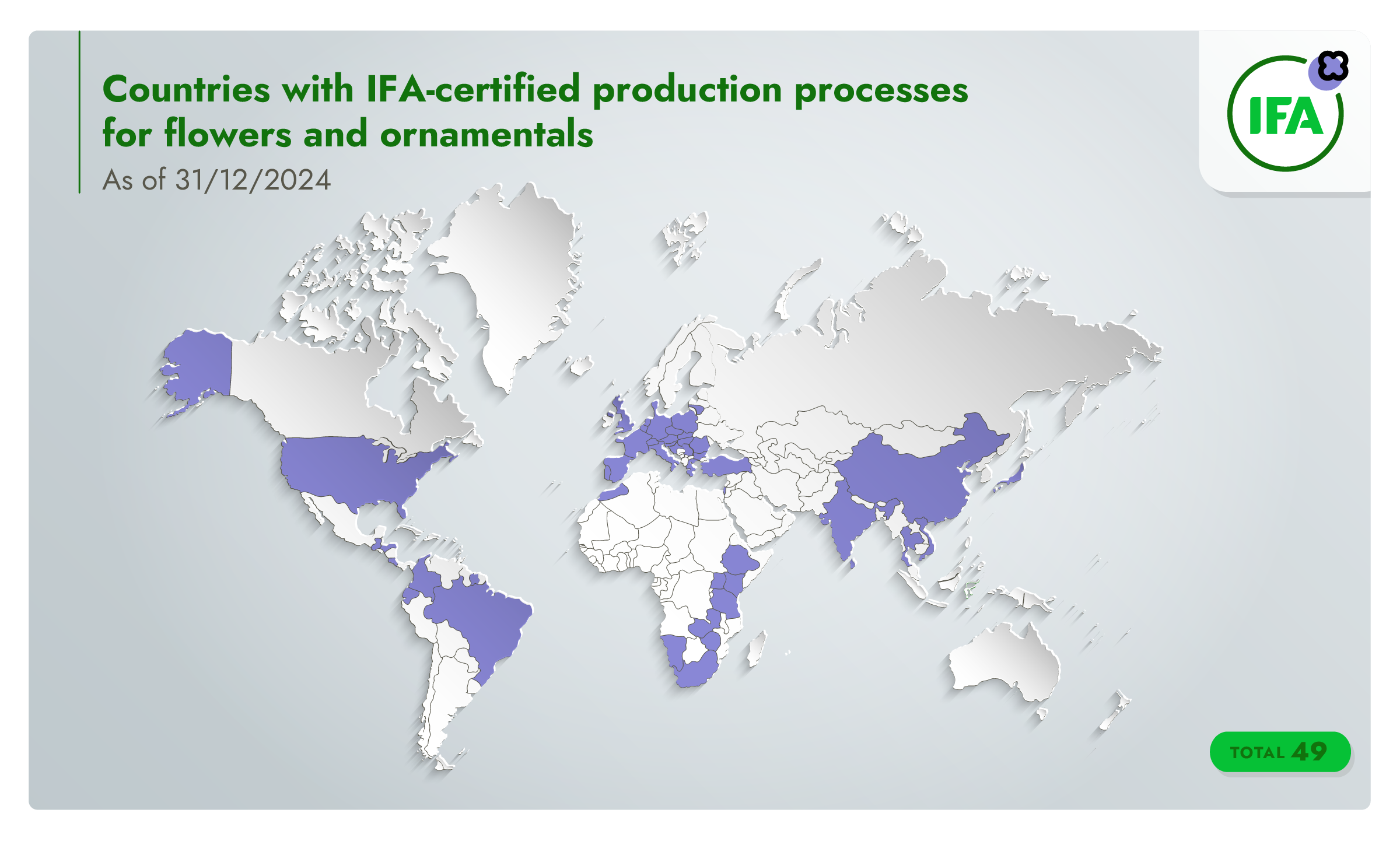
IFA for flowers and ornamentals at a glance
Relevant for all
major types of production systems, from open field to greenhouses and hydroponics
Applicable
to the production processes of cut flowers, house plants, trees, bulbs, perennials, turf, and more
Certification options
for a variety of farm sizes and types, including smallholders and producer groups
Implemented worldwide
with a global network of approved CBs and Registered Trainers
Easily combinable
with a range of targeted add-ons and supply chain solutions for flexible assurance customization
Supports
the UN Sustainable Development Goals
Relevant for all
major types of production systems, from open field to greenhouses and hydroponics
Implemented worldwide
with a global network of approved CBs and Registered Trainers
Applicable
to the production processes of cut flowers, house plants, trees, bulbs, perennials, turf, and more
Easily combinable
with a range of targeted add-ons and supply chain solutions for flexible assurance customization
Certification options
for a variety of farm sizes and types, including smallholders and producer groups
Supports
the UN Sustainable Development Goals
Which topics does IFA for flowers and ornamentals address?
IFA for flowers and ornamentals covers all stages of production, from nursery (propagation) through preharvest activities to basic postharvest handling. The standard has been developed together with sector experts and underwent extensive public consultation as part of our process for standard setting. This ensures that IFA remains robust, realistic, and cost-efficient for producers while meeting the evolving demands of buyers.
Core topics in IFA v6 for flowers and ornamentals include:
Management and traceability
Soil, plant nutrition, and fertilizers
Water management
Integrated pest management
Plant protection products
Waste management
Biodiversity
Energy efficiency
Workers’ health, safety, and welfare
Management and traceability
Discover more about how IFA helps you address challenges in the floriculture sector.

Who should use IFA for flowers and ornamentals?
IFA for flowers and ornamentals is available for producers worldwide, addressing a range of production systems from open field to greenhouses.
It offers certification options for both individual producers (single site and multisite producers) and producer groups, including smallholders. Producers can get certification in any country where a GLOBALG.A.P. approved certification body (CB) conducts audits.
We also offer primary solutions for producers who require a stepwise approach towards certification, as well as a portfolio of add-ons to core solutions for producers who require further assurance on specific topics.
How does IFA for flowers and ornamentals work?
Compliance with the standard requirements is audited annually by an accredited and independent third-party CB.
Producers can choose from any GLOBALG.A.P. approved CB active in the relevant country.
A successful CB audit results in a certificate valid for one year.
The certificate is issued at scope level (IFA for plants) and lists the applicable product categories individually (e.g., flowers and ornamentals, plant propagation material). Producers with multiple types of operations can therefore get certification for all of them through a single audit process.
IFA v6 checklists are generated digitally and are tailored to the producer’s specific production practices, eliminating any not applicable requirements. Our smarter, streamlined, and outcome-oriented approach also provides flexibility to producers in demonstrating compliance.
The standard is composed of principles and criteria (P&Cs). P&Cs are graded in three levels: Major Must, Minor Must, and Recommendation.
Principles
Fundamentals that set the foundation of a GLOBALG.A.P. requirement
Written in statement form
Describing the outcome to achieve
Criteria
Methods that producers can use to demonstrate a principle to be true
Different ways to demonstrate compliance e.g., data, record of procedure
Evidence required for demonstrating that the outcome is achieved
Read more about the audit process and standard requirements.

How is certification status verified?
Every producer registered in the GLOBALG.A.P. certification system is assigned a unique 13-digit GLOBALG.A.P. identification number (e.g., a GLOBALG.A.P. Number (GGN)). This number allows verification of certification status in the GLOBALG.A.P. IT platform, upholding our rigorous transparency requirements throughout the supply chain.
Producers can control data access and privacy rights for audit reports, and the reports are not shared publicly or with third parties. This process is handled via your chosen CB.

IFA and the FSI 2025 ambition
IFA for flowers and ornamentals is the reference standard for good agricultural practices in the Floriculture Sustainability Initiative’s (FSI’s) “Basket of Standards,” supporting responsible sourcing and the FSI 2025 ambition.
The FSI is a market-driven initiative that brings together members of the international floriculture sector to mainstream sustainability in the flowers and plants supply chain.

What is the continuous improvement plan?
IFA v6 for flowers and ornamentals introduces the need for a continuous improvement plan at farm level. This approach encourages measurable target setting that helps producers to improve efficiency and achieve recognition for efforts to further the long-term viability and sustainability of farming operations.
Plan: After analyzing current practices, data identifies areas for optimization, and the producer sets measurable goals for improvement.
Do: Targeted measures are implemented in farming practices.
Check: Implementation is checked and progress reviewed at the annual CB audit.
Act: The continuous improvement plan is revised based on measurable progress and impact.

IFA for flowers and ornamentals and the Sustainable Development Goals
The 2030 Sustainable Development Agenda, adopted by all UN member states in 2015, provides a shared blueprint for peace and prosperity for people and the planet, now and into the future.
At its heart are the 17 Sustainable Development Goals (SDGs) which call for global partnerships to improve health and education, reduce inequality, spur economic growth, tackle climate change, and preserve our oceans and forests.
Broadly considered, all GLOBALG.A.P. smart farm assurance solutions, partnerships, and capacity-building activities contribute to the SDGs, but for the flowers and ornamentals sector, the following SDGs are intricately embedded into the IFA standard.
SDGs addressed by IFA for flowers and ornamentals

IFA promotes safe working conditions and competence through requirements that address health and safety, hazards and first aid, personal protective equipment, and workers’ well-being.

IFA supports efficient use and the protection of water sources through criteria on soil, plant nutrition, and fertilizers to minimize eutrophication.

IFA encourages producers to optimize energy use and minimize nonrenewable energy use and greenhouse gas emissions.

IFA certification is a marker of safer and more responsible farming practices, which buyers around the globe require in their supply chains. Producers who implement IFA can improve the efficiency of their production processes and gain access to global markets. This helps secure their economic well-being.

IFA is a standard that aims to promote safer and more responsible farming practices and the efficient use of natural resources. Criteria on waste, biodiversity, energy, water conservation, and more all contribute to this goal.

Criteria supporting goals 6, 7, 14, and 15 also support climate action and tackle climate change.

IFA includes criteria on plant protection products and waste seeking to minimize marine pollution and eutrophication, protecting marine wildlife.

IFA includes criteria to protect the soil and promote efficient plant nutrition while minimizing negative environmental impact. Waste is a significant topic in IFA, with criteria that address pollution, proper disposal of waste, and recycling. There are also criteria for enhancing biodiversity on farms to strengthen local ecosystems.
Latest news
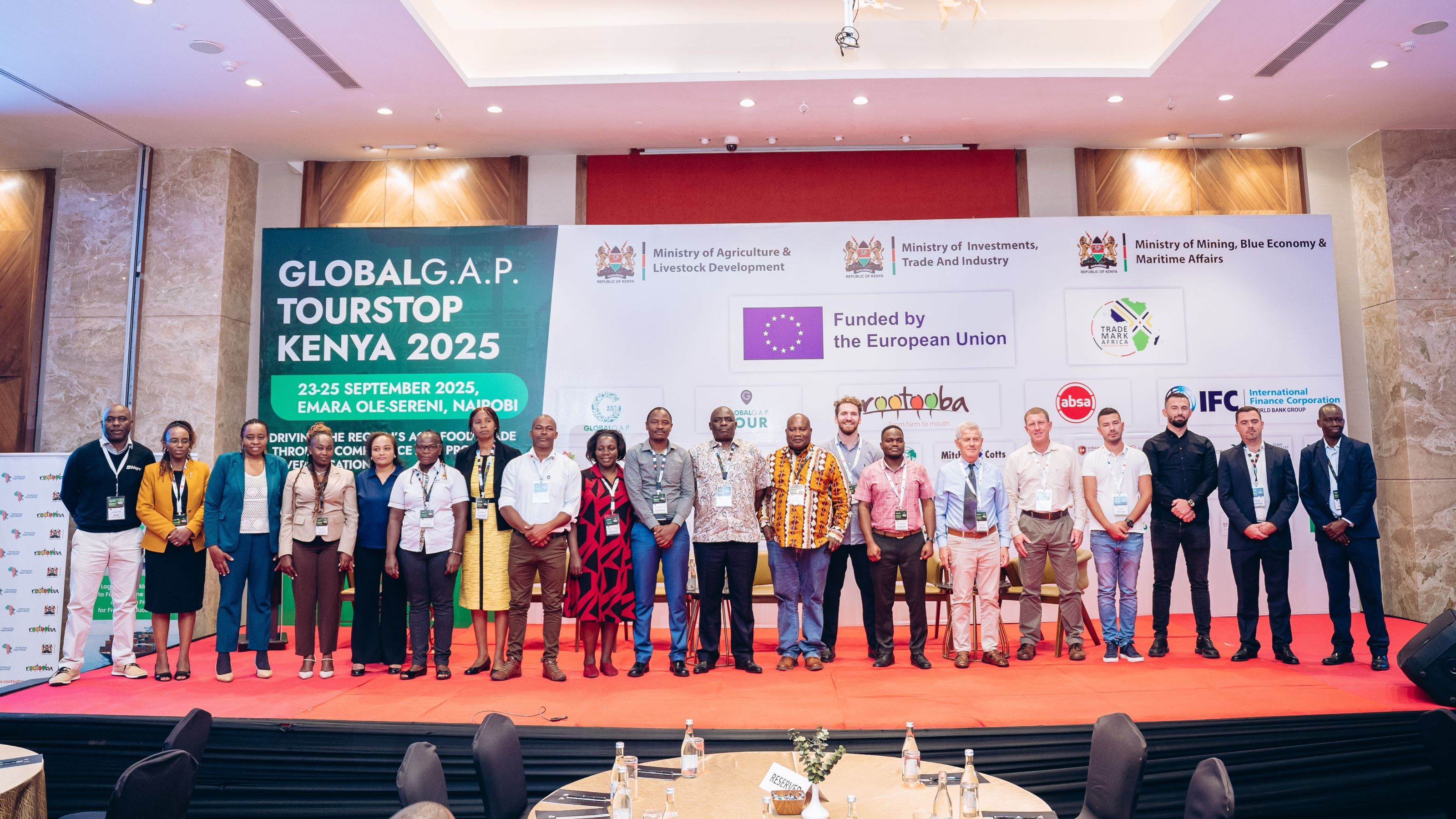
29 September 2025
Looking back at the 2025 GLOBALG.A.P. TOUR Stop in Kenya
The GLOBALG.A.P. TOUR returned to Kenya this September with Rootooba, uniting agricultural and aquaculture stakeholders for three days of knowledge-sharing, networking, and collaboration.
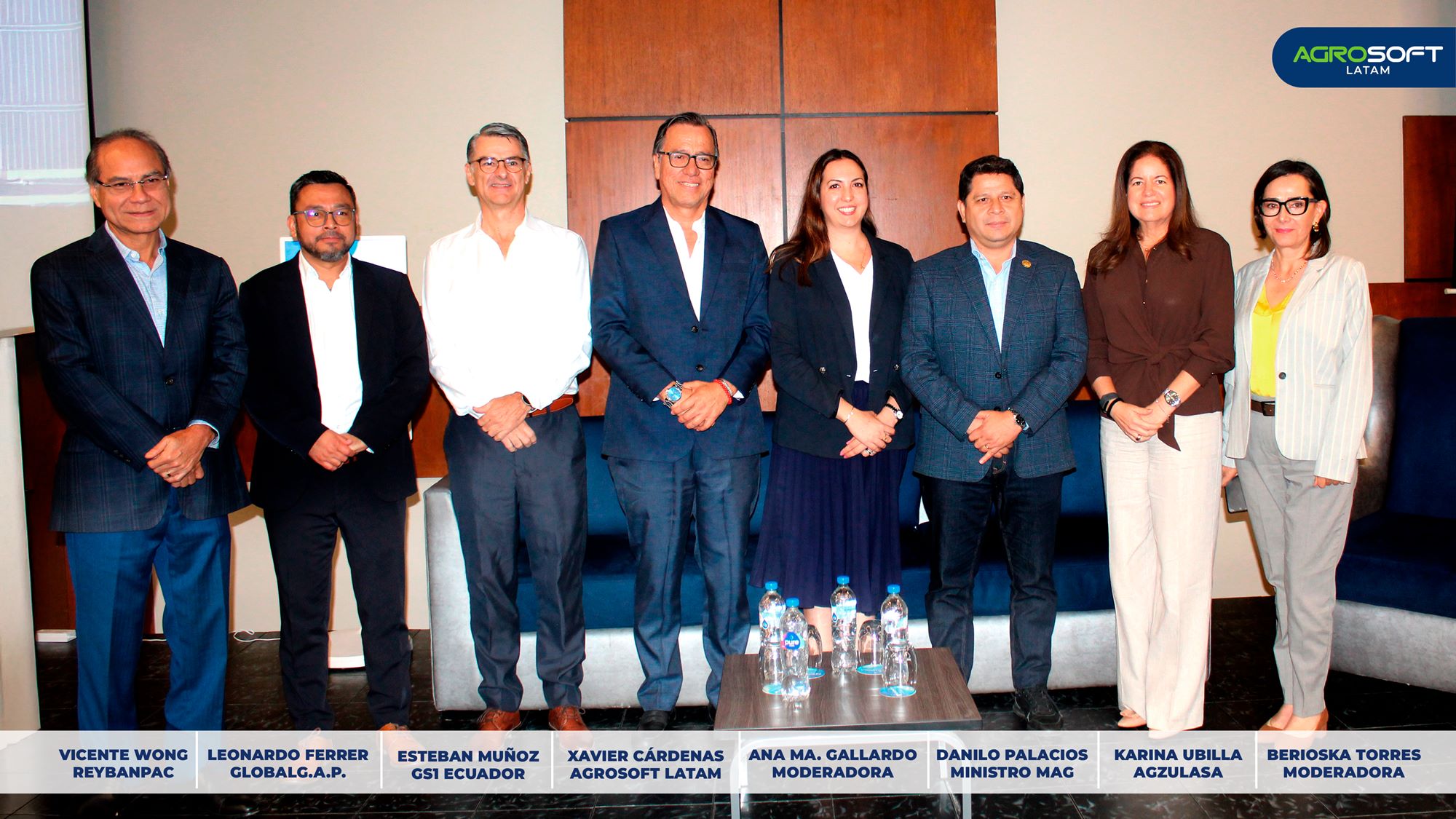
25 September 2025
GLOBALG.A.P. community member Agrosoft Latam hosts a forum on digitalization and traceability towards GLOBALG.A.P. certification
Agrosoft Latam hosted a forum on Digitalization and Traceability, highlighting GLOBALG.A.P. certification’s role in safe food and market access.
Technical news
Full technical newsletters are available in the document center, but you can view technical news updates by topic in our technical news libraries.

Making responsible farming visible to consumers
IFA certification is one of the requirements for using the GGN label – a consumer label for certified, responsible farming and transparency found on fruit and vegetables, farmed seafood, flowers, and plants. Improve your competitive edge and grow trust in your brand by making responsible farming visible on store shelves!
Demonstrate commitment to a more responsible floriculture sector
Why choose Integrated Farm Assurance for flowers and ornamentals?
Integrated Farm Assurance (IFA) is a leading farm assurance solution for flowers and ornamentals – enabling producers worldwide to assess, demonstrate, and improve their responsible floriculture practices. IFA certification is requested by retailers across the globe and provides a practical path for producers to implement best practices at farm level that contribute to the long-term viability of the sector.
Which industry challenges does IFA for flowers and ornamentals address?
Today, consumers are more aware than ever of farm-level topics such as energy consumption, working conditions for laborers, and the effects of plant protection products on surrounding ecosystems. Consumers want more transparency surrounding their products and are changing their buying behavior accordingly.
Supply chain stakeholders understand the increasing expectations of consumers and civil society and recognize the need to measure and improve the environmental performance of the sector.
Certification is crucial for driving transformation in the sector as a whole and helping producers achieve their sustainability goals.
IFA aims to tackle sector demands through a holistic approach. With the resulting certificates, buyers can choose suppliers that fulfill the necessary criteria and support their sustainability pledges.
Follow our five steps to certification to get started today.
IFA for flowers and ornamentals in numbers (as of 31/12/2024)
2,485
producers under certification
49
countries with certified production processes
38,711
hectares of certified production
2,485
producers under certification
49
countries with certified production processes
38,711
hectares of certified production

What are the benefits for producers?
Improve farm management and the efficiency of farm operations.
Get recognition for your efforts to implement responsible farming practices and to protect resources, surrounding ecosystems, and workers’ health, safety, and welfare.
Achieve compliance with a globally recognized standard that fulfills international supply chain requirements.
Enjoy a flexible approach to farm assurance through the easy combination of add-ons and the opportunity to join the consumer-facing GGN label initiative.
Rely on a standard tried, tested, and trusted by producers in more than 45 countries with certification options for both individual producers and producer groups.
Choose from an extensive worldwide network of accredited, GLOBALG.A.P. approved certification bodies (CBs).

What are the benefits for supply chain stakeholders?
Access a flexible farm assurance portfolio that provides all the coverage you need through one certification system.
Support industry-driven smart farm assurance solutions and demonstrate your commitment to more responsible floriculture practices.
Promote a holistic approach that features rigorous criteria on the environment, workers’ health, safety, and welfare, production processes, and traceability.
Mitigate reputational risks and assist in protecting product integrity.
Enable trusted supply that meets major consumer demands – from energy and waste to working conditions.
Source from a growing pool of producers with certified production processes globally, with easy certification verification in the GLOBALG.A.P. IT platform.
Unlock opportunities to participate in the GGN label initiative.

Maintaining trust in GLOBALG.A.P. certification
The GLOBALG.A.P. Integrity Program was founded in 2008 as the first of its kind in food certification. Designed to ensure the consistent delivery and implementation of GLOBALG.A.P. standards and add-ons worldwide, the program monitors and assesses all aspects of the third-party certification process.
Which solutions can be combined with IFA for flowers and ornamentals?
We offer a range of standards and add-ons targeted to specific aspects of production and the supply chain. They can each be audited or assessed in combination with IFA, extending the certification scope and offering buyers specific assurance tailored to their preferences.
Learn more about GLOBALG.A.P. smart farm assurance solutions.
You may also be interested in...
Impact-Driven Approach to Sustainability add-on
The IDA add-on aims to promote more responsible farming practices through the collection and analysis of input consumption data and other farm metrics.
GLOBALG.A.P. Risk Assessment on Social Practice
GRASP is an add-on that aims to support the evaluation of workers' health, safety, and welfare at farm level.
GLOBALG.A.P. Chain of Custody
CoC is a supply chain standard that safeguards the segregation and traceability of products originating from GLOBALG.A.P. certified production processes.

Ready to get started?
Use our Smart Checklist Builder to easily understand which GLOBALG.A.P. smart farm assurance solutions are recommended for your production practices and generate a personalized checklist for your self-assessment.
Your guide to implementation
How to prepare for an Integrated Farm Assurance audit
Learn more about the key documents and fee structure of Integrated Farm Assurance (IFA) for flowers and ornamentals. Follow our five steps to certification for an overview of the certification process, and find a GLOBALG.A.P. approved certification body (CB) in your area to get started.
Implementation and CB audit process
How does the CB audit process work?
IFA compliance is audited annually by accredited and independent third-party CBs.
Producers can choose from any GLOBALG.A.P. approved CB active in the relevant country.
A successful CB audit results in a certificate valid for one year.
The CB is responsible for uploading the audit report and maintaining the accuracy of producer data in the GLOBALG.A.P. IT platform.
Producers will be audited annually by a CB as part of the renewal process.
Which documents are required?
GLOBALG.A.P. general regulations: Rules that define how the certification process works, from the scope of the standard to the audit requirements. Scope-specific regulations also outline the certification process for each IFA scope (e.g., rules for plants).
Principles and criteria (P&Cs): Principles are the fundamental requirements for each standard. They describe the outcomes to achieve and are accompanied by corresponding criteria that detail the various ways in which a producer can demonstrate compliance.
Checklist: The full list of P&Cs as used by CB auditors, enabling producers to conduct a self-assessment in preparation for the CB audit.
Which versions of IFA are currently valid?
IFA for flowers and ornamentals is currently valid in v6.
IFA v6 Smart was published in April 2022 and replaced v5.2 on 1 January 2024.
The FAQ contains further information on documents, certification renewal, and more.
Transitioning from IFA v5 to IFA v6?
Our transition tools can help you cross-reference the requirements and support your transition to the newest version.

What are the IFA standard requirements?
P&Cs are graded in three levels: Major Must, Minor Must, and Recommendation.
To achieve certification, producers must comply with 100% of the Major Musts and at least 95% of the Minor Musts.
Corrective actions must be proposed for all non-compliances and submitted to the CB within the specified period.
Non-compliances must then be verified as corrected and compliant by the CB before a certificate can be issued.
How much does IFA certification for flowers and ornamentals cost?
Each farm is unique, and the total costs of certification depend on a combination of factors such as farm size, number of sites, location, the necessary preparation measures (such as establishing new procedures), and more. IFA contains three cost elements:
Implementation costs: Incurred by the producer to prepare for the CB audit
CB service fees: Determined and invoiced by the CB to cover audit time and travel costs
GLOBALG.A.P. registration and certificate license fees: Calculated based on production area and certification option, and invoiced by the CB
The GLOBALG.A.P. fee table contains full information on the fee structure for each standard and add-on.
Five steps to certification

You will need the GLOBALG.A.P. general regulations, the IFA P&Cs for flowers and ornamentals, and the checklist. All the required documents are available online, for free, and in multiple languages. They are linked below and can also be found in the GLOBALG.A.P. document center.

Use the documents to guide the implementation of the standard requirements, and then
conduct a self-assessment using the checklist. Our worldwide network of Registered Trainers
can also provide assistance during audit preparations.

Search the list of GLOBALG.A.P. approved CBs by region, country, scope, and status. Contact the CB of your choice and request an audit. Note that the GLOBALG.A.P. fee table does not cover CB service fees such as audit time or travel costs to your site.

The CB will conduct the audit and upload the results to the GLOBALG.A.P. IT platform. Any non-compliances which are detected during the CB audit must be corrected within the specified period and verified by the CB before a certificate can be issued.

Once all requirements are met and verified by the CB, they will issue your IFA certificate. Your certification status is then publicly visible in the GLOBALG.A.P. IT platform for transparency in the market.
Key documents
The three most relevant documents are linked below. Click ‘view more’ to see further related documents. Remember to always check with your CB that you have all necessary documents prior to audit.
Rules for plants scope
GLOBALG.A.P. general regulations
V6
English | Last updated: 08/09/2025
GLOBALG.A.P. general regulations
V6
English | Last updated: 08/09/2025
GLOBALG.A.P. general regulations outline the framework of the certification system, including the role and relationship of the GLOBALG.A.P. Secretariat and certification bodies, and provide context for implementing checklist content.
IFA v6 Smart for flowers and ornamentals
Principles and criteria (P&Cs) (CPCCs)
V6 Smart
English | Last updated: 09/04/2025
Principles and criteria (P&Cs) (CPCCs)
V6 Smart
English | Last updated: 09/04/2025
Principles and criteria are a complete list of the requirements for a given standard or add-on. The foundational requirements each detail an outcome that must be achieved, and the corresponding ways in which compliance can be demonstrated.
IFA v6 Smart for flowers and ornamentals
Checklists
V6 Smart
English | Last updated: 08/04/2025
xlsx
Checklists
V6 Smart
English | Last updated: 08/04/2025
xlsx
Checklists are documents containing standard/add-on principles and criteria which are used during the audit/assessment to check whether compliance is achieved. They may also be used to conduct self-assessments.
GLOBALG.A.P. approved CBs
The list of GLOBALG.A.P. approved CBs can be filtered by region, country, scope, and status. Click a CB to find more information and contact details.
If you do not filter your search, or filter only according to region and/or country, your search results will also show CBs that offer certification against benchmarked schemes, but which may not have approval for any GLOBALG.A.P. standards and add-ons.
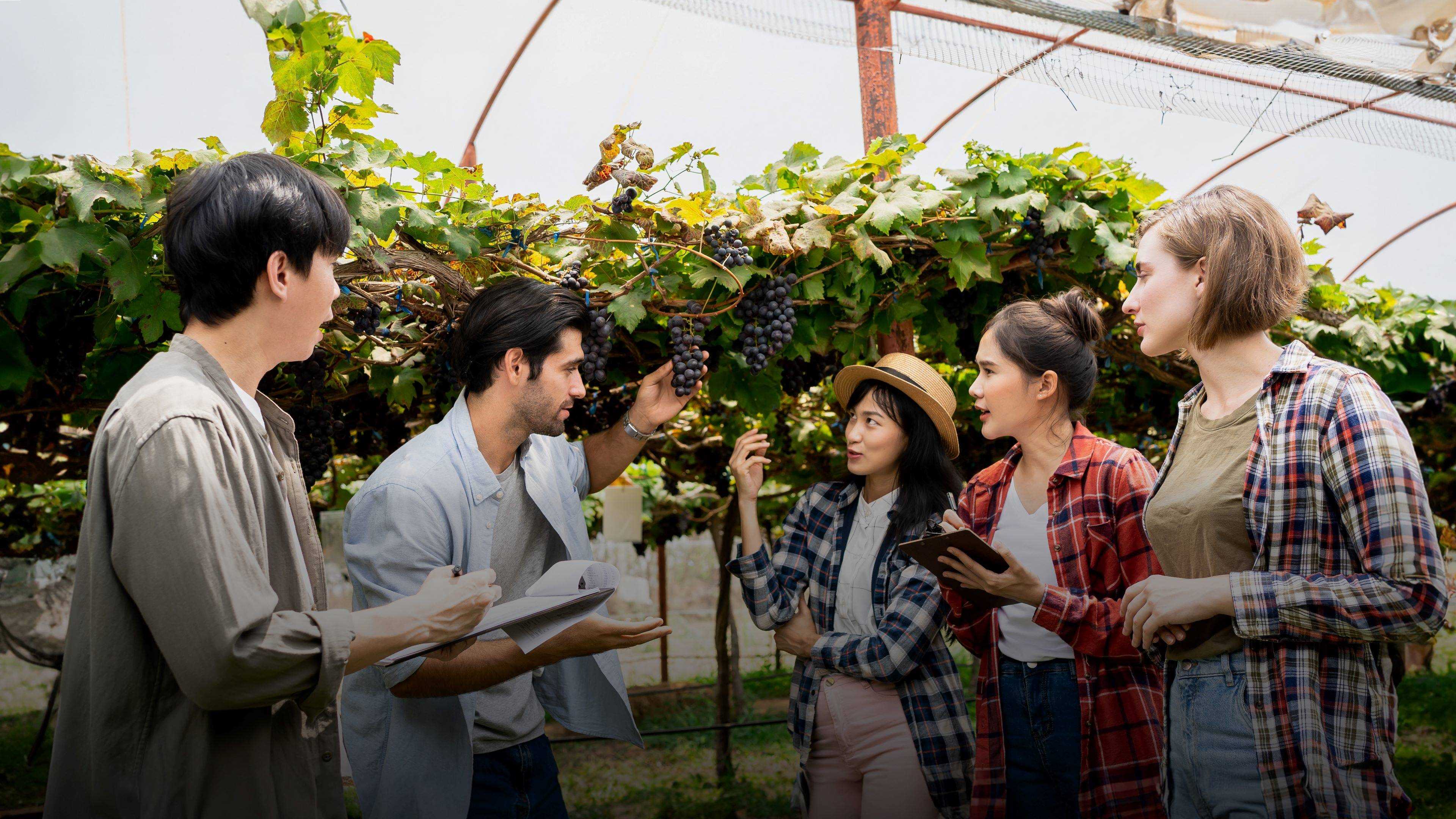
Capacity building
Need assistance with the certification process? Our capacity-building program offers a range of options for training, consultation, and more!
A brief history of IFA for flowers and ornamentals
After the success of IFA for fruit and vegetables, many stakeholders show an interest in developing a similar standard for flowers and ornamentals. The first IFA for flowers and ornamentals is developed in 2003 (as part of IFA v2).
In 2004, IFA is revised and a new version published in 2005. In 2006, almost 300 delegates from 41 countries come together in Paris to discuss the future direction and content of the next version of IFA, which is launched in 2007.
In 2009, there are 459 producers under IFA certification for flowers and ornamentals. 2010 sees IFA v4 – the most widely consulted, innovative, and science-based version yet – launched in London. IFA v4 becomes effective on 1 January 2011. By the end of 2012, there are 598 producers under certification in 30 countries.
2013 sees a leap in uptake, counting 889 producers under IFA certification for flowers and ornamentals by the end of the year. In 2014, another revision of IFA begins (v4 to v5). IFA v5 replaces v4 in July 2015.
In 2017, the GGN label for floriculture is launched, linking consumers to farm profiles on the GGN label portal (www.ggn.org) via unique GGNs found on product packaging. By the end of 2018, there are 997 producers under IFA certification for flowers and ornamentals in 31 countries, covering over 16,000 hectares.
In 2019, in collaboration with GLOBALG.A.P. technical experts, the Flowers and Ornamentals Focus Group begins reviewing IFA v5 and creates a draft for IFA v6, a new version that is adapted to the latest challenges faced by the flowers and ornamentals sector.
The new Impact-Driven Approach to Sustainability (IDA) add-on is launched for the floriculture sector in 2020.
The draft of IFA v6 is put to a first public consultation from May to June 2020, a second from November 2020 to January 2021, and a third from May to July 2021.
The interim final version of IFA v6 for flowers and ornamentals is published in April 2022, and the final version follows in September 2022. During the period 2019–2022, the number of producers under IFA certification grows to 2,495 producers covering nearly 30,000 hectares by the end of 2022.
By the end of 2023, there are almost 2,500 producers under certification across 52 countries – with certified floriculture production practices covering over 48,000 hectares. IFA v6 for flowers and ornamentals replaces v5.2 on 1 January 2024.
FAQ
IFA v6 Smart is the only valid version available for certification. It replaced v5.2 on 1 January 2024.
In-house plant propagation material for own flower and ornamental production is covered by IFA for flowers and ornamentals, but plant propagation material production destined for the market is covered by a different standard: IFA for plant propagation material.
A combined audit against both IFA for flowers and ornamentals and plant propagation material is possible. Connect with your certification body (CB) to learn more.
Each farm is unique, and the total cost of certification depends on a combination of factors such as size, location, existing policies and processes, etc. The invoice from your certification body (CB) will include CB service fees to cover expenditures (determined by the CB) and the GLOBALG.A.P. registration and certificate license fees (size-based, determined based on hectares of annual production).
Download the GLOBALG.A.P. fee table to learn more.
IFA documents for flowers and ornamentals are currently available in:
English
Dutch
French
German
Italian
Spanish
Portuguese
All documents are located in the GLOBALG.A.P. document center. More languages are added based on demand – please contact us with requests.
IFA compliance is audited annually. The certification body (CB) audit must take place within the validity period of the current certificate in order for your production processes to retain the certification status. Contact your CB to request an audit.
No, certification to a GLOBALG.A.P. standard/holding a GLOBALG.A.P. certificate is not the same as being a GLOBALG.A.P. Community Member.
GLOBALG.A.P. Community Membership is a paid partnership opportunity, offering a variety of benefits including the ability to support the development of GLOBALG.A.P. standards and add-ons, contribute to the GLOBALG.A.P. governance structure, and access discounted services.
Learn more about how to become a GLOBALG.A.P. Community Member.
GLOBALG.A.P. trademarks may be used in a strictly B2B context and must be accompanied by a GLOBALG.A.P. identification number (e.g., the producer’s GLOBALG.A.P. Number (GGN)) or a QR code to a producer’s certification status in the GLOBALG.A.P. IT platform. The trademarks should never appear to consumers, for example on product packaging.
Download the GLOBALG.A.P. trademarks use: policy and guidelines and GLOBALG.A.P. trademarks use: FAQ documents for comprehensive information on rules and use cases.
The GGN label is a cross-category consumer label that can be found on a variety of products, including fruit and vegetables, farmed seafood, flowers, and plants. It stands for certified, responsible farming and transparency and exists to offer shoppers consistent, consumer-relevant assurance and orientation throughout the store.
Along with the GGN label, unique 13-digit GLOBALG.A.P. Numbers (GGNs) that are linked to producers with GLOBALG.A.P. certification are printed on product packaging. When shoppers find a GGN on their product, they can enter it into the GGN label portal (www.ggn.org) to find a farm profile for the producer.
IFA certification at farm level is one of the requirements for using the GGN label. Learn more about joining the GGN label initiative today.
The CB auditor requirements for IFA for flowers and ornamentals are detailed in “GLOBALG.A.P. general regulations – rules for certification bodies”.
Learn more about how to become a GLOBALG.A.P. approved CB or extend your auditing scope.
Industry harmonization is a key pillar of our activities. For scheme or checklist owners, GLOBALG.A.P. benchmarking provides international recognition in a highly competitive market. It also creates time- and money-saving opportunities, with the entire value chain profiting from the benefits.
For more details on benchmarking requirements, see section 2 of the GLOBALG.A.P. benchmarking regulations.
Learn more about GLOBALG.A.P. benchmarking.
When developing our standards and add-ons, we aim to receive as much input and feedback as possible. With producers based in more than 135 countries around the world and stakeholders covering every part of the value chain, our standard-setting process ensures that our solutions are both fit for purpose now and built with the future in mind.
We offer public consultation periods for draft standard documents that are created by our technical experts. This helps uphold transparency in the development, revision, and decision-making process. The web page on standard setting outlines the development process.
Technical questions can be addressed to standard_support@agraya.com. Your query will be forwarded to the relevant technical expert.
The GLOBALG.A.P. Academy offers public trainings on our portfolio of smart farm assurance solutions, while our worldwide network of Registered Trainers offers authorized trainings and other services. See the GLOBALG.A.P. Academy course catalog or find a Registered Trainer for more information.

Contact us
For technical/interpretation questions, please contact us at standard_support@agraya.com.
For questions about the audit process or the GLOBALG.A.P. IT platform, please contact us at customer_support@globalgap.org.
